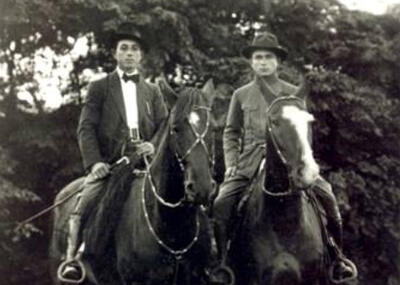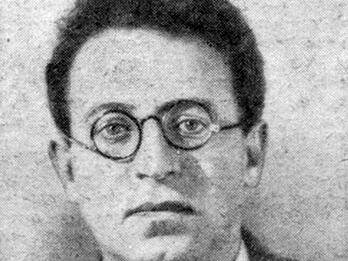A Good Harvest
Samuel Eichelbaum
1933
For four years now he had been working the two hundred acres of farm land they had given him when he arrived in Argentina from Russia. The Roschpina colony of Entre Ríos was the most cheerful one in the area, but this fact didn’t affect his aversion to rural tasks. When he’d sailed for these lands, he’d agreed to accept the farm solely with the…
Samuel Eichelbaum, born in a Jewish Colonization Association colony, became a famous Argentine fiction writer and playwright. After leaving the region, he moved to Buenos Aires, where he became self-educated. This story depicts the allure that cities presented to many colonists, who found rural life neither interesting nor conducive to progress. In particular, Eichelbaum presents agricultural work as feminine (defended only by the women in Bernando’s family) and an impediment to masculine creativity. However, the fear of destitute Jews visibly roaming the cities guided the concerns of JCA administrators, who kept detailed records of those who left.
The argument between Bernardo and his mother-in-law exposes the arguments for and against the city. What are the arguments?
Samuel Eichelbaum wrote about loneliness in many of his works, in particular about the dangers of people turning inward. Do you think Bernardo became dangerous?
Why do you think the short story is titled “A Good Harvest”?
Creator Bio
Samuel Eichelbaum
The son of Russian immigrants, Samuel Eichelbaum was a leading Argentine dramatist in the 1920s, 1930s, and 1940s, his plays a mainstay of the Buenos Aires theatrical season. He was raised amidst the Jewish agricultural colonies, which provided the inspiration for his early short fiction. “A Good Harvest” drew on his own family’s experience: his father, who found the isolation of the colonies stultifying, burned two of his fields and moved the family to the capital. Eichelbaum’s plays are known for their intense self-analysis and introspection, their probing of human motivation, and their searching for hidden motives behind even the most trivial acts. Several of his plays feature urban, middle-class Jewish characters.
You may also like

Jewish Gauchos in South America’s Pampas
In the late 19th and early 20th centuries, with the help of philanthropic organizations, many Jews escaping persecution in Russia made new lives for themselves in the South American pampas.
Carpathian Rhapsody
Tel Aviv
Scorched Earth



